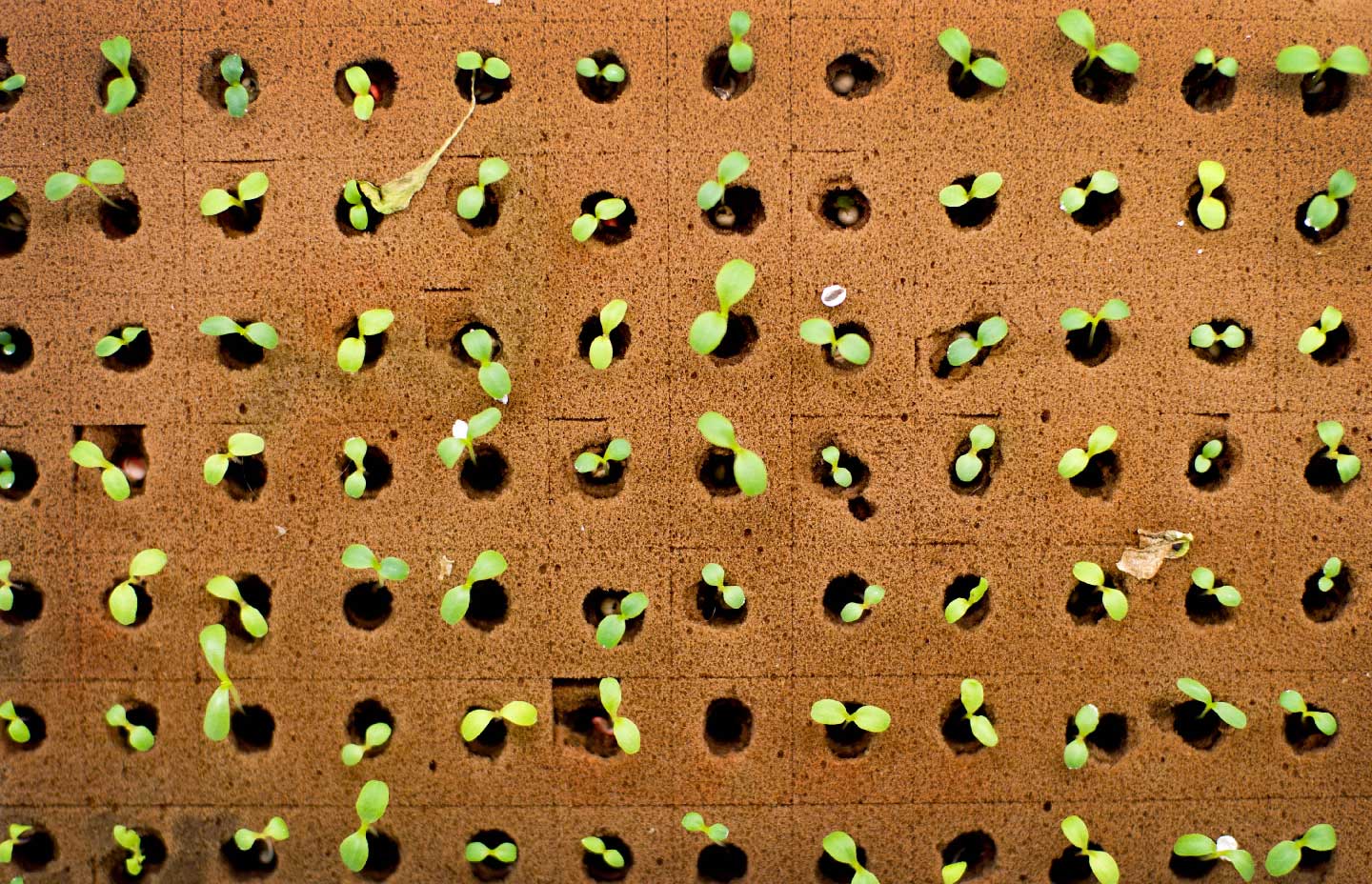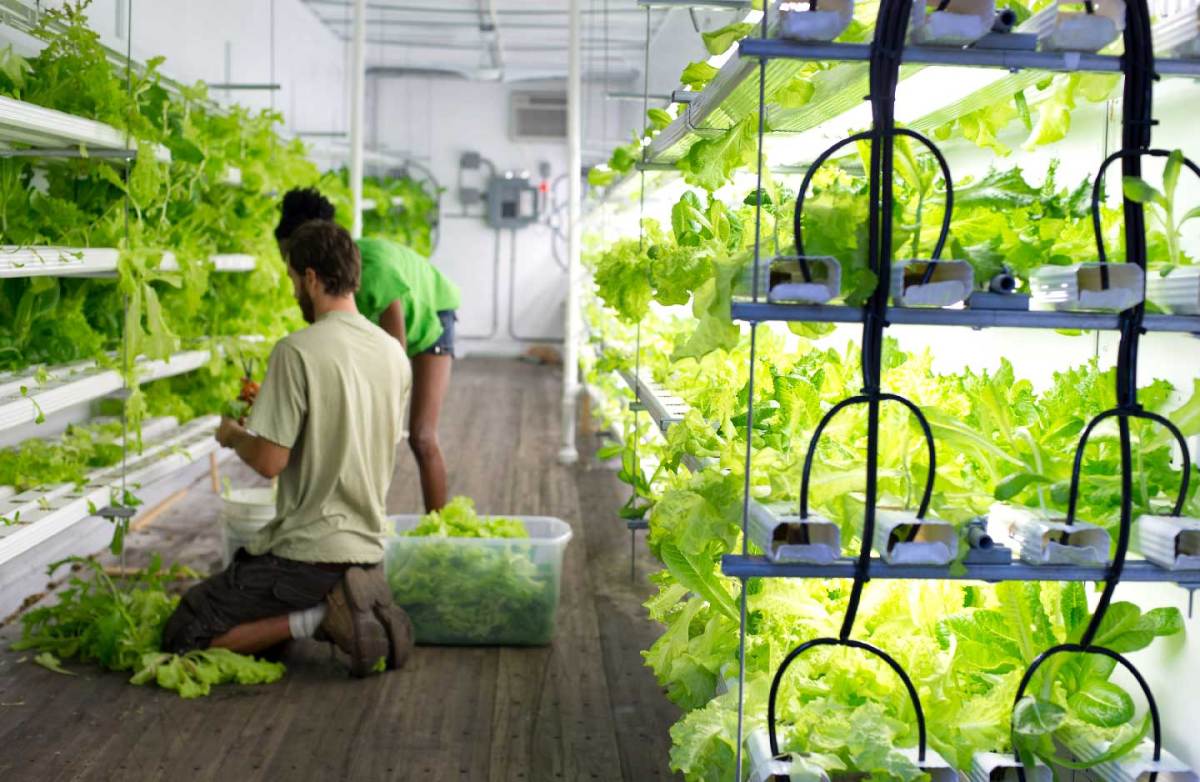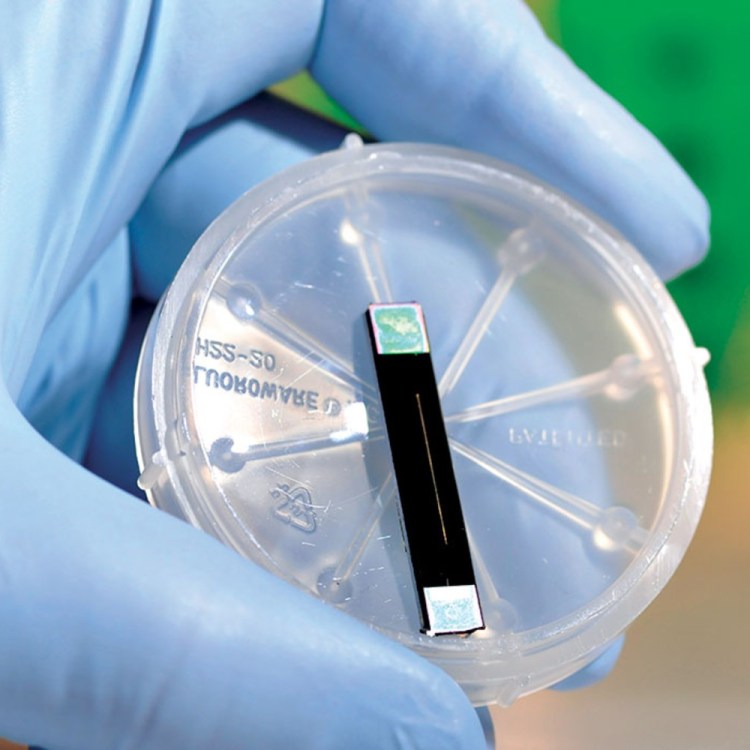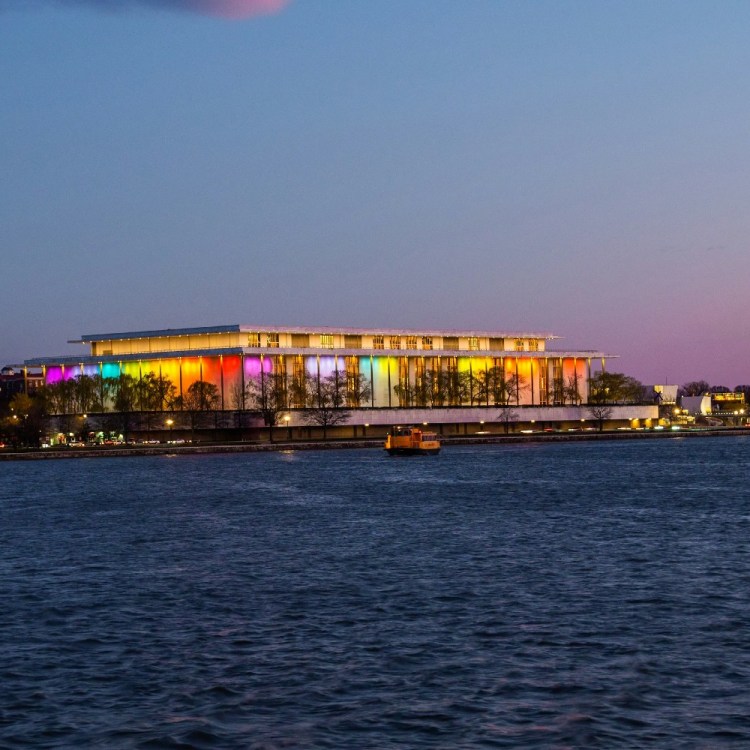Shipping container farms can grow produce in food deserts or actual deserts—and, in the future, maybe outer space. It’s part of a growing trend of converting old containers into self-sustaining hydroponic farms.
A 40-foot container can produce five-acres worth of fruit and vegetables if outfitted properly. Instead of soil, plants grow in nutrient-rich water and anything leftover is recirculated. This system ends up using 97 percent less water than a conventional, the Washington Post reports.

Some use energy-efficient LED lights operate at the ideal intensity needed to induce attractive quality in the produce. Farmbeds outfitted with sensors control lighting, water, and nutrients can deliver precise amounts during key points in the growing cycle, according to the Wall Street Journal.
With this innovative technique, produce isn’t limited to climate or soil constraints. From rare Caribbean fruits in January to customized lettuce in the heart of Detroit, container farms can grow just about anything in nearly any location.
Companies like Local Roots stand out by bringing produce that’s grown locally to areas in cities without healthy food options, known as food deserts. The convenience of a shipping container allows them to get dropped on the back of a truck and driven to where it’s needed.
This article appeared in an InsideHook newsletter. Sign up for free to get more on travel, wellness, style, drinking, and culture.

























